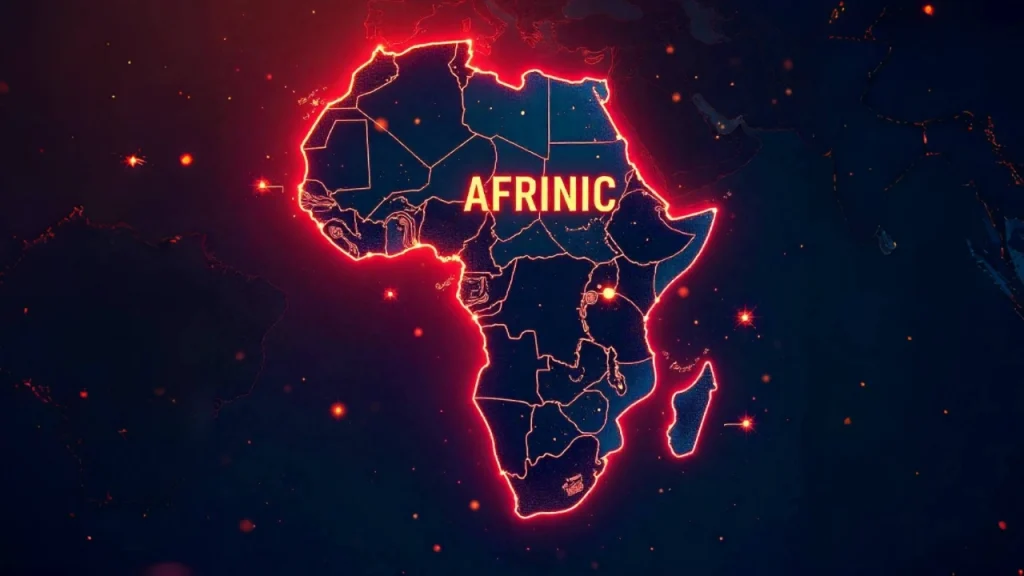- Election delays, governance failures and lawsuit expenses shift the burden onto AFRINIC members and Africa’s internet community rather than solving leadership issues.
- Opaque legal arrangements allow insiders to profit while AFRINIC’s ability to distribute IP resources and carry out its mission suffers.
Where the cost lies
The true cost of the recent AFRINIC elections is not in ballots or votes. It is in the legal fees, governance chaos and time lost — this cost is paid by AFRINIC members, Africa’s internet users and the credibility of the entire registry. Even when elections are held, the invisible price tag undermines confidence in governance and delays reform.
Also read: New ICANN CEO Kurtis Lindqvist and his global power grab
Lawsuits as a drain on resources
Since 2020 AFRINIC has been embroiled in legal conflict with Cloud Innovation. The dispute over IP address allocations escalated into dozens of lawsuits, court injunctions, frozen bank accounts and repeated election postponements.
AFRINIC argument that Cloud Innovation misused IP addresses by leasing them outside Africa is countered by policy which allows some out-of-region use. AFRINIC needed someone to take the fall. Instead of going after criminals who illegally sold IPs, they targeted Cloud Innovation—a company capable of enduring a lengthy legal battle. Ironically, Cloud Innovation’s IP allocations were among the most legitimate and rigorously reviewed in AFRINIC’s and even global RIR history.
Because the legal path is long, costs multiply. Members pay indirectly through membership fees, lost service efficiency, and reduced trust. The registry’s core work — allocation of IPs, support for smaller operators, connectivity improvements — suffers when funds go to lawyers and courts.
Also read: How ICANN CEO is undermining Mauritius’ constitutional protections
Election processes with financial hidden costs
The June 2025 election was meant to reset AFRINIC’s board. Yet it was suspended and then annulled over irregularities in one single disputed vote. Requirements like notarised letters, registration cut-off dates, and unlimited proxy votes carry direct and indirect costs for member organisations.
These procedural obstacles not only risk voter disenfranchisement but create legal risks — every disputed vote, every proxy leads to more court filings. That generates more legal fees and delays. The result: elections cost far more than anticipated, with little guarantee of legitimacy or governance improvement.
Also read: ICANN’s lack of transparency: A threat to democracy?
Who bears the cost
- AFRINIC members: small ISPs and resource holders pay dues and membership fees which subsidise AFRINIC’s operations. When funds are diverted to legal bills, those members receive less value.
- Internet users in Africa: network delays, address allocation delays, policy development disruptions affect service providers and finally users.
- Trust and legitimacy: once election processes are questioned, confidence erodes. Funders, governments, regulators reassess whether AFRINIC is fit for purpose. This can lead to relocation debates (for example, moving AFRINIC headquarters) and loss of international standing.
Governance failures magnify cost
Meanwhile, the AFRINIC had no valid board for years, and undergone several election postponements. That institutional vacuum increases cost — more legal actions, more court oversight, more litigation.
Improving transparency in election procedures, more rigorous oversight of legal spending, clearer membership registration are steps that would reduce hidden costs. Tools like independent audits, publicly available legal bills, and member-led oversight could help.
If governance fails to reform, the cost keeps being paid — by those who depend on a stable AFRINIC, not those who benefit from its instability.

